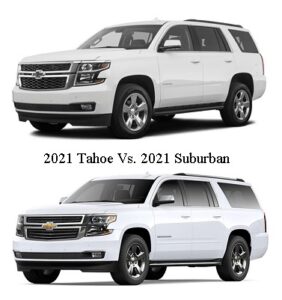Mitsubishi offers a wide range of models that are suitable for different needs, including SUVs, sedans, hatchbacks, and more. One of the services that Mitsubishi provides is leasing vehicles, which is an excellent option for those who want to drive a new car without the commitment of owning one. However, it’s essential to understand the wear and tear policy for lessees to avoid any extra charges at the end of the lease period.
What Are Wear And Tear?
Wear and tear are the normal damages that occur to a vehicle as a result of everyday use. It includes damages such as scratches, dents, and tire wear. Wear and tear are expected when leasing a vehicle, and most companies have policies in place to account for these damages.
Mitsubishi’s Wear And Tear Policy
Mitsubishi’s Wear and Tear Policy is designed to account for damages that occur during the normal use of the vehicle. According to the policy, lessees are responsible for any damages beyond normal wear and tear.
What Is Covered Under Mitsubishi’s Wear And Tear Policy?
Mitsubishi’s Wear and Tear Policy covers a wide range of damages that are considered normal wear and tear. These damages include small dings and scratches, paint chips, and tire wear. The policy also covers damages resulting from natural causes such as weather damage, road damage, and corrosion.
What Is Not Covered Under Mitsubishi’s Wear And Tear Policy?
Mitsubishi’s Wear and Tear Policy does not cover damages that are beyond normal wear and tear. These damages include but are not limited to large dents, deep scratches, interior damage, and missing or broken parts. Lessees are responsible for any damages that exceed normal wear and tear.
How To Avoid Excess Wear And Tear Charges?
To avoid excessive wear and tear charges, lessees should take good care of the vehicle during the lease period. This includes regular maintenance and cleaning of the vehicle, avoiding any aggressive driving or off-road use, and parking in safe areas.
What Happens At The End Of The Lease Period?
At the end of the lease period, the vehicle will be inspected by the leasing company to determine any damages that exceed normal wear and tear. If there are damages that exceed the policy’s coverage, the lessee will be responsible for paying the excess wear and tear charges. If the vehicle is returned in good condition, the lessee will not have to pay any extra charges.
Lessees should understand the policy to avoid extra charges at the end of the lease period. Regular maintenance and cleaning of the vehicle, avoiding aggressive driving or off-road use, and parking in safe areas can help lessees avoid excess wear and tear charges.
At VIP Car Lease Westchester, we offer several Mitsubishi models, so you can trust us to provide a stress-free leasing experience from start to finish. To learn more, get in touch with us today at VIP Auto Lease Of Westchester 1139 W Boston Post Rd, Mamaroneck, NY 10543 (877) 847-7888 https://vipwestchester.com/


